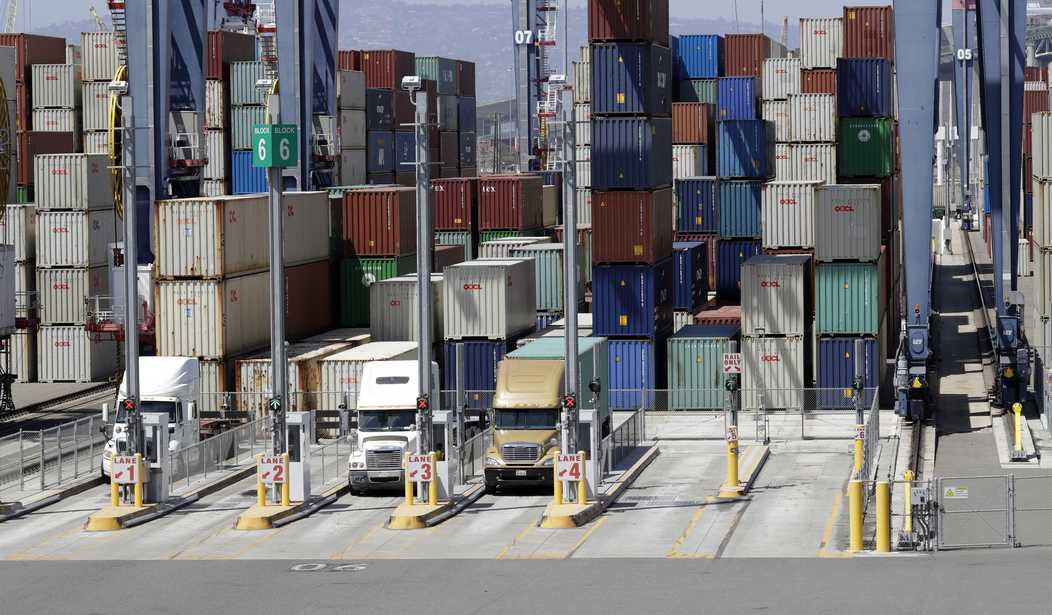The US Supreme Court on June 28 declined to review a challenge by truck drivers to California’s controversial labor law AB5, meaning that it now goes into effect. The decision will throw up to 70,000 California truckers into legal limbo and further pressure the already-stressed supply chain.
AB5 is a labor classification law that was designed to force gig-economy companies like Uber, Lyft, and DoorDash to classify workers as employees, instead of as independent contractors, meaning they’d be eligible for benefits. Of course, lobbyists from those tech giants managed to get their companies exempted.
RedState has reported extensively on AB5 in the past.
Truckers weren’t as lucky as Uber and Lyft, and they now must come into compliance with the law. Bloomberg reports on the serious implications to the state’s huge number of truck owner-operators:
Almost a dozen truckers told Bloomberg News they’re unsure how to comply with California’s Assembly Bill 5, which requires workers satisfy a three-part test to be considered independent contractors, or else be seen as employees entitled to job benefits. The trucking industry relies on contractors — who until now have had flexibility to operate on their own terms — and has fought to be exempt from state regulations for years.
Nearly all the state’s goods are transported by truck, so any disruption to the system is certain to be profound—and likely to spill over into the nation’s supply chain. Truckers aren’t even sure how to proceed. “We have never gotten any good answers from anyone official in California on how this is supposed to be enforced or how our members can comply,” said Norita Taylor, the director of public relations at the Owner-Operator Independent Drivers Association.
Per Bloomberg:
More than 70% of truckers serving some of the country’s largest ports — including Los Angeles, Long Beach and Oakland — are owner-operators, and AB5 will govern their relationships with carriers, brokers and shippers in most cases, according to the CTA.
Brace yourself California… you will have nothing to buy and you’ll be unhappy about it. Starting a trucking company in CA was an epic nightmare, but I’m gladly going to buy land in another state and do it all over again. No more loads to/from CA. https://t.co/5MsjmtgRcM
— Nostopin 💾🇺🇸 (@Nostopin1) July 9, 2022
The timing of the Supreme Court’s decision will also create chaos. “This denial couldn’t have come at a worse time,” said Eric Sauer, senior vice president for government affairs at the CTA. “We’re in peak harvest season. We’re also in peak construction season. And this is the time for peak holiday imports coming into the ports.”
There’s a good chance you’ll be looking at some empty shelves in your grocery store soon.
Kevin McMaster, vice president of carrier sales at Flock Freight, told Bloomberg that many carriers will be forced to downsize because the cost of employing all these owner-operated trucks would be too high. He continued:
This would cause a ripple effect in the industry, pushing many drivers who don’t want to apply for their own authority to lease out of state, likely in Arizona or Nevada, and even force some into retirement due to increased market pressures. There will likely be pressure added on capacity in California that could exacerbate an already tough environment where drivers are at a premium.
One of the main problems with this nanny-state law: many truckers like being independent. They prefer owning their own vehicle, they have flexibility in their hours and what jobs to take, and most importantly, they have freedom. Owner-operator Hedayatullah Abrahami takes pride in his ownership: “Oh, yeah, why not?” he said. “Yeah. That’s my own truck, working for myself, that’s really good. I’m happy for that.”
My bet is he moves out of state, along with a lot of others. Life may soon become more difficult everywhere though, as the Biden Administration—never passing on a chance to punish people—is also reportedly taking a hard look at what California’s doing so they can impose something similar on a national level.
There are still a lot of unknowns as the effects of AB5 begin to be felt across the trucking industry. As CBS News writes, “Now that it is law, no one seems to know how it will be enforced or who will enforce it. But there isn’t much time to figure that out.” One thing is sure though: there are going to be a lot of disruptions in the supply chain in California, and since the state is home to three massive cargo ports, that will affect everybody.
AB5 is yet another progressive, do-gooder law supposedly designed to protect the working man—but it’s really a thinly-disguised push to increase unionization in the state. It will have profound “unforeseen” negative effects for all of us.
If you live in #California and you aren’t actively pushing #Democrats out of office, I don’t want to read your tweets bellyaching about the cost of food here. #inflation #ab5 70,000 Self-Employed Truckers in California Face Shutdown Under New State Lawhttps://t.co/598xuNHdq2
— Tammy Quackenbush (@Koreafornian) July 9, 2022













Join the conversation as a VIP Member